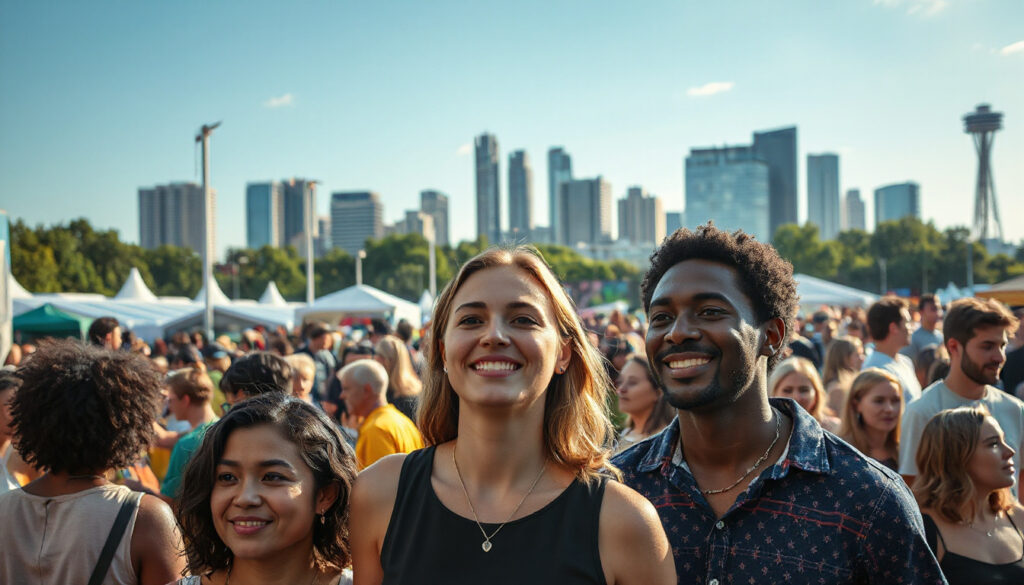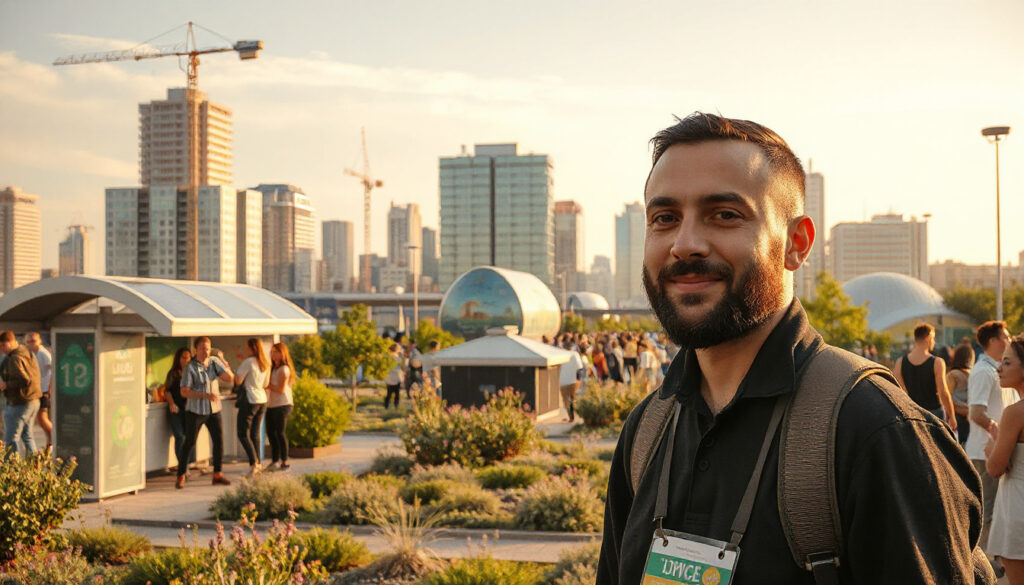Reducing the Carbon Footprint: Eurovision 2026’s Bold Strategy
Eurovision stands as one of Europe’s largest live shows. It brings millions of fans together. The event grows, and its impact on the environment grows too. Thousands of people come, many cameras cover, and large crews build the show. This work creates a carbon footprint. For Vienna’s Eurovision 2026, the team has a clear plan. They build the event on a green plan. The goal is to cut the negative effects on nature while keeping the lively event alive.
Here is why Eurovision 2026 cuts its carbon output and the steps it takes as a green model.

Understanding the Carbon Footprint of Eurovision
Live events of this size use much power and many resources. Planes, hotels, halls, and stage work all need energy. This work releases greenhouse gases and uses up resources. It makes waste and can disturb local life. Eurovision reaches many viewers online and has thousands in the halls. Here, the environment can suffer greatly.
Vienna 2026 meets a strong rule in Austria. Any event with more than 5,000 guests must show its carbon cost and pay for its emissions. In this way, Eurovision 2026 is the first show to follow a firm legal green rule. This step shows Vienna’s care for the earth.
Key Strategies to Cut Eurovision 2026’s Carbon Output
1. Reducing Event-Related Energy Use
The hall, Wiener Stadthalle, gains new tools for saving energy. Lights use low-power LED bulbs. The stage builds with green materials and safe plans, and it also borrows ideas from Eurovision 2025 in Basel. All event power comes from nearby green sources, which cuts out fossil fuels.
2. Promoting Green Ways to Travel
Travel makes a large share of the carbon cost at big shows. Vienna has a strong public transport network that runs all night when needed. Weekday passes cost less than €8 for most people. The event asks fans to take trains, buses, and trams.
A special app helps users count their travel emissions and pay for the extra cost. Night train services, like the Nightjet, run from major cities such as Paris, Berlin, and Milan. These trains give a lower-carbon way to travel than planes.
3. Going Digital and Cutting Waste
Paper tickets no longer print. Digital tickets run the show now. This change cuts out paper waste and saves on print jobs. The team cuts the use of single-use plastic and picks items that can be used again. Local food suppliers bring in food, so travel work drops. Food is served on dishes that can wash and come back for use.
4. Green Food and Meals
Feeding large crowds in a green way is a hard work. For 2026, food teams choose fresh, seasonal, and local food to cut long transport work. Most food choices are meat-free. These choices lower the carbon cost compared to meat-heavy meals.
Unused food is not thrown out. It goes to local help groups. Free water stations and public fountains stand in Vienna. They cut the use of plastic bottles.
Why This Matters for Eurovision Fans and Host Cities
- Social Care: Eurovision 2026 shows skill in music and care for the earth.
- Balance of Work and Nature: Green steps help local jobs and income. Vienna expects €70 to 75 million from fans. At the same time, nature does not pay a high price.
- Inspiration for New Events: The team will share a report after the show to guide future hosts. This report shows what worked and helps others copy these green rules.
How Hosts Like Basel Helped Vienna’s Plan
Basel held Eurovision in 2025 with a complete green plan. Basel used safe stage work, free public transport, and careful management of work and waste. Basel showed that a large event can help the earth. Vienna now aims to drop Eurovision’s carbon cost by 28% compared to the past five events. This goal makes event plans work with a cycle approach and teams in the city.
Practical Tips for Fans at Eurovision 2026
If you plan to visit Vienna for Eurovision 2026, keep these ideas in mind:
- Use trains or public transit. The Nightjet or local trains offer low-carbon travel. In Vienna, use buses or trams instead of taxis or rental cars.
- Book early and choose green places to sleep. Many hotels and hostels in Vienna show green marks.
- Bring a refillable water bottle. Use public water stations and avoid plastic.
- Support local shops. Eat food from local sellers and see local areas beyond the main event zones.
- Get the official green app. This app tracks travel cost to the earth and helps you pay for your travel impact.
Final Thoughts and Next Steps
Eurovision 2026 in Vienna will show a bright music show and a green plan for big events. The plan uses local green energy, safe travel, waste cuts, and care for nature. This plan shows how big events can cut their carbon cost in a real way.
If you are a fan planning to visit, a planner seeking green ideas, or a watcher who cares for earth health, Eurovision 2026 shows many green tips. Watching progress through clear reports will help know if the plan works and push future events to act with care.
Start your plans now. Plan a trip that fits the green mood as Vienna gets ready to host the world in May 2026. For news on green progress at Eurovision and tips for fans, sign up for event emails and check the social channels.
Ready to join a greener Eurovision?
Book your trip early, choose smart travel, and keep earth care in mind as Vienna welcomes the world in May 2026.







